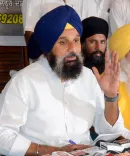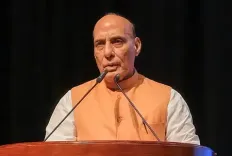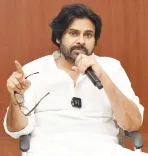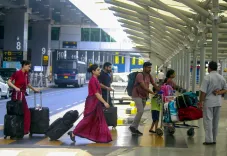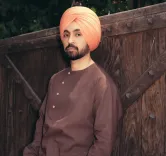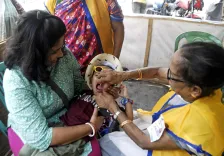Supreme Court Postpones Hearing on Lokpal's Authority over High Court Judges' Complaints
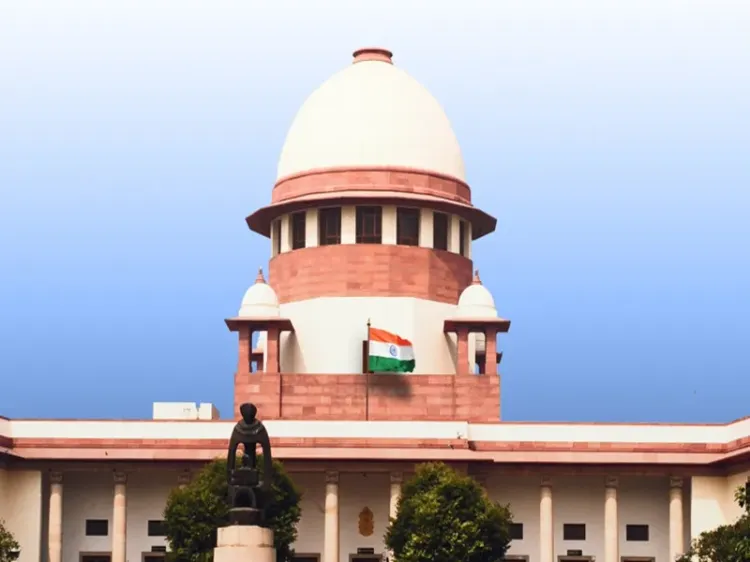
Synopsis
Key Takeaways
- Supreme Court adjourns hearing on Lokpal authority over judges.
- Suo moto suspension of Lokpal's decision.
- Case to be reviewed on April 30.
- Jurisdiction of Lokpal is under scrutiny.
- Judicial independence remains a critical issue.
New Delhi, April 15 (NationPress) The Supreme Court on Tuesday postponed the hearing regarding a suo moto (on its own initiative) suspension of a Lokpal decision which allows the anti-corruption agency to address complaints against High Court judges.
A Special Bench comprising Justices B.R. Gavai, Surya Kant, and Abhay S. Oka met in the post-lunch session and noted that the suo moto matter would require at least two hours for deliberation, scheduling it for final hearing on April 30.
During the previous session, the Justice Gavai-led Bench appointed senior advocate Ranjit Kumar as an amicus curiae (friend of the court), emphasizing that the apex court would solely evaluate the jurisdictional question concerning the Lokpal without delving into the specifics of the allegations presented by the complainants.
Solicitor General Tushar Mehta, the second highest legal officer of the government, argued that High Court judges are constitutional functionaries and thus do not fall under the scope of anti-corruption legislation.
In a ruling made on February 20, the Supreme Court suspended the effect of the contested Lokpal decision after the agency referred two complaints to the office of the Chief Justice of India (CJI), alleging that a sitting additional judge of a high court improperly influenced a colleague and an additional district judge dealing with a suit filed against the complainant by a private firm.
Commenting on the situation, the Justice Gavai-led Bench described it as something “very very disturbing,” and subsequently issued notices to the Union government and the Registrar of the Lokpal.
By ordering a stay on the contested decision, the apex court acknowledged the significance of the issue as it pertains to the independence of the judiciary.
Earlier on January 27, the Lokpal determined that it is authorized to consider complaints against judges of the High Court established by an Act of Parliament.
“By this order, we have resolved a single issue definitively - regarding whether the Judges of the High Court established by an Act of Parliament fall within the scope of Section 14 of the Act of 2013, affirmatively. No more and no less. In that, we have neither scrutinized nor evaluated the merits of the allegations,” stated the Lokpal.
“While we recognize that a complaint submitted to the Lokpal cannot be strictly equated with a criminal case filed under Section 154 of the CrPC or the corresponding provision in the Bharatiya Nagarik Suraksha Sanita 2023, considering the framework of Section 20 of the Act of 2013 (Lokpal and Lokayuktas Act), upon receiving a complaint, the Lokpal must first determine whether a prima facie case exists before proceeding with a preliminary inquiry or investigation,” it further elaborated.
Nonetheless, the anti-corruption body had sent the complaints to the office of the CJI “for his kind consideration” and, pending his guidance, postponed their review for four weeks.
Previously, the Lokpal ruled that even though the Supreme Court justices are public servants as per Section 2(c) of the Prevention of Corruption Act, 1988, they are not subject to its jurisdiction because they do not fit within the definition of “public servant” outlined in Section 2(1)(o) in conjunction with Section 14 of the Lokpal and Lokayuktas Act, 2013.

